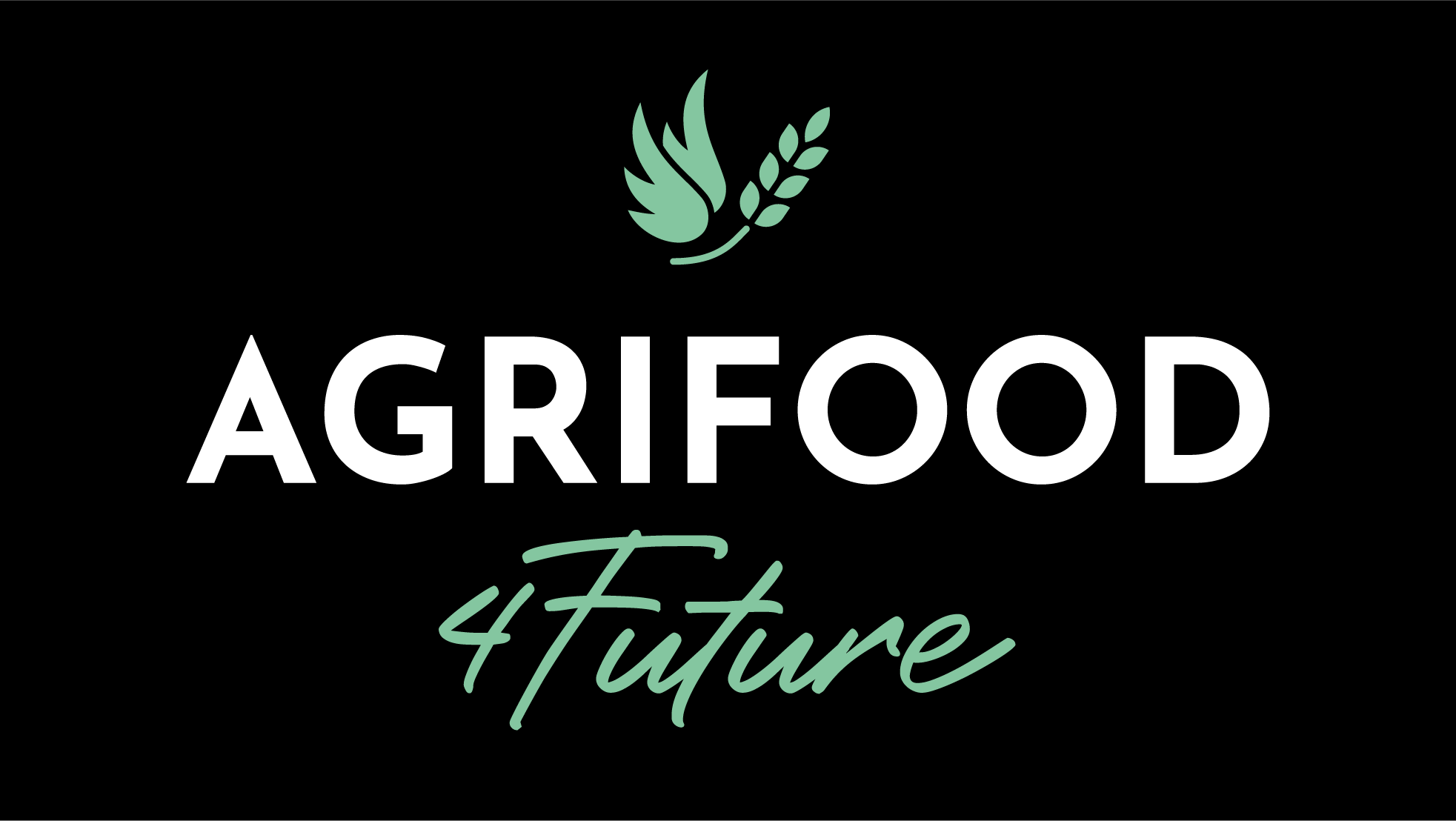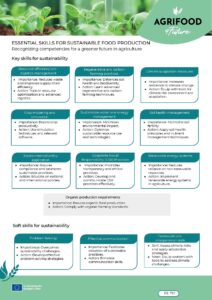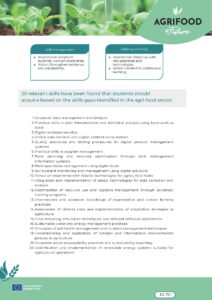Event Types
NewsAbout event
Empowering the agri-food sector: Key skills for sustainable food production
In the context of global efforts to promote sustainability, the agri-food sector faces unique challenges and opportunities. Our study aimed to identify specific skills gaps and training needs necessary for achieving a sustainable food production system. With contributions from Spain, France, Italy, Belgium, Portugal, Greece, and Denmark, the study reflects a diverse and comprehensive perspective on the sector’s current state and future requirements.
Key Findings
The analysis of responses from 196 participants revealed critical areas where skill development is essential. These areas are categorized into Digital Skills, Green Transition and Sustainability Skills, and Soft Skills.
Digital Skills
Advanced data management and analysis skills are crucial for informed decision-making in the agri-food sector. Improving practical skills in data interpretation and statistical analysis will enhance productivity and efficiency. Additionally, digital entrepreneurship skills are vital for the modern agri-food sector. Training individuals in online business creation, digital marketing, and e-commerce management will enable them to leverage online platforms effectively. Practical digital tool skills are also fundamental. Enhancing both everyday and advanced digital communication skills is necessary to navigate today’s interconnected world.
Green Transition and Sustainability Skills
Resource efficiency and logistics management are key to reducing waste and improving supply chain efficiency. Implementing training in resource optimization and advanced logistics will be essential for sustainable operations. Regenerative and carbon farming practices contribute to long-term sustainability by enhancing soil health and biodiversity. Providing knowledge on advanced regenerative and carbon farming techniques is critical. Climate adaptation measures are essential for increasing resilience to climate change. Equipping workers with tools for climate risk assessment and adaptation strategies will future-proof the sector. Furthermore, sustainable water and energy management practices are vital for minimizing environmental impact. Focusing on optimizing these practices will ensure the efficient use of resources.
Soft Skills
Problem-solving skills are necessary for addressing sustainability challenges. Developing strong analytical and creative thinking will foster effective problem-solving strategies. Effective communication skills are crucial for facilitating the adoption of sustainable practices. Enhancing verbal and written communication abilities will be beneficial. Teamwork and interpersonal skills are important for the successful implementation of sustainable practices. Fostering strong teamwork and conflict management will support collaborative efforts.
The findings from our study underscore the importance of continuous training and development in these essential skills. Addressing the identified skills gaps will significantly enhance the efficiency, productivity, and resilience of the agri-food sector, aligning with global sustainability goals. We invite you to explore the detailed infographic accompanying this post, which visually summarizes the key skills necessary for a sustainable food production system. Together, we can work towards a greener future in agriculture.



